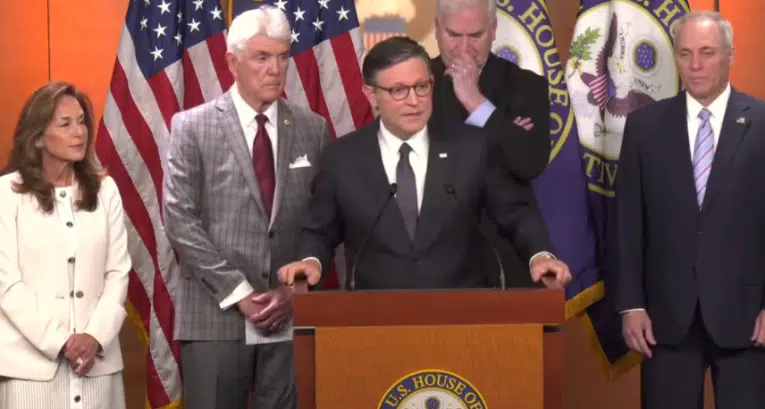By Bill Wilson –
This week, the Senate is expected to vote on S.J. Res. 26, Senator Lisa Murkowski’s resolution that would overturn the Environmental Protection Agency’s (EPA) carbon dioxide endangerment finding that was infamously issued on December 7th, 2009.
The resolution is cosponsored by most of the Senate Republican Caucus as well as Democrat Senators Blanche Lincoln (LA) and Ben Nelson (NE), leading “aides predict it will easily clear the 51-vote threshold for passage,” as reported by Roll Call.
The American people can only hope. The EPA’s alarmist decision greatly understates the impact of restricting and reducing carbon emissions — which means limiting energy use — on global population sustainability and economic growth. The American people (and everyone else) depend upon petroleum, gasoline, diesel, coal, and natural gas to do just about everything, including getting to work, delivering goods and services, heating their homes in the summer and cooling them in the winter, and providing hot water.
But it goes deeper than that. The population explosion over the past 200 years is entirely owed to the Industrial Revolution that was fueled in large part by increased energy output. The necessary consequence of dramatically reducing energy consumption — and the food production, medical advancement, and economic growth that depends on it — would have to be a commensurate, significant decrease in the human population.
Really, it all depends on just how draconian the agency’s restrictions of carbon emissions are. How much of a price will be placed on carbon emissions by the agency? If it’s too high, the impact could be devastating, resulting in the means of sustaining the world’s population being suddenly restricted or gradually reduced.
Either way, people will die.
Ironically, in its finding, the agency claimed that the increased concentration of carbon dioxide in the atmosphere “threaten[s] the public health and welfare of current and future generations” with increased heat waves, more-intense hurricanes, floods, storm surges, rising sea levels, erosion, wildfires, drought, and even allergens and pathogens. The EPA also predicts the displacement of indigenous populations, the eventual decrease of food production and agriculture, and the reduction of forest productivity.
With predictions that dire, one would expect that the finding shall become the foundation for the EPA to incrementally regulate, restrict, and eventually prohibit emissions of carbon dioxide by motor vehicles and industry.
Maybe, if the people are lucky, the very air we all exhale shall remain unregulated, although given the broad nature of the finding, there certainly would be nothing to stop regulation in this arena — except for the Constitution. Liberty lovers may be out luck, however. The lack of constitutional authority for a federal agency to issue such a dictatorial proclamation has already been ignored by the Supreme Court in 2007, when the nation’s highest court ruled that carbon dioxide could be regulated by the EPA as a “pollutant.”
Making matters worse, in its finding the EPA disregarded the downward trend in global temperatures over the past decade despite increased carbon emissions, as documented by APS Physics Christopher Monckton of Brenchley. It ignored the failed projections of increased temperatures by the International Panel on Climate Change and other proponents of the man-made global warming hypothesis. It suppressed internal dissent at the agency, as when Dr. Alan Carlin submitted comments against the EPA’s finding.
The EPA even overlooked the impact of the Climategate scandal where it was revealed that global temperature data was manipulated and exaggerated by climatologists, and then utilized to promote public policies such as the endangerment finding, the punitive carbon emissions cap-and-tax now being considered in Congress, and the damaging Copenhagen Protocols that would have been an extension of the Kyoto-era restrictions on energy output.
That alone should be cause for Senators to vote in the affirmative on Murkowski’s resolution repealing the EPA’s endangerment finding. It is devoid of all of the most important recent revelations in climate science, including the serious doubt that has been cast upon the premise that man is even responsible for fluctuations in the Earth’s temperature.
In the end, the finding — and whatever tyrannical restrictions on energy use result from it — will ultimately prove more dangerous than man-made global warming ever could have been. As written by Monckton, “The correct policy approach to a non-problem is to have the courage to do nothing.”
Bill Wilson is the President of Americans for Limited Government





